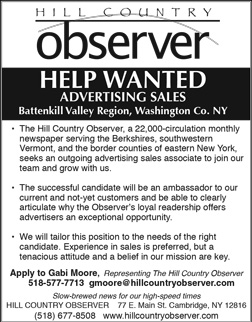Editorial June 2015
E D I T O R I A L
On childhood vaccines, bad medicine in Vermont
Supporters are calling it a victory for science, but the Vermont Legislature’s decision last month on childhood vaccines is rightfully leaving some parents feeling bullied.
In the aftermath of a measles outbreak earlier this year in California that sickened 147 people, lawmakers in Montpelier were persuaded to do away with a longstanding provision of state law that allowed parents to opt out of the state’s childhood vaccination requirements on “philosophical” grounds. So after the next school year, exemptions will only be allowed on medical or religious grounds; otherwise, parents who say no to any vaccines will have to home-school their children.
About 4 percent of parents of school-age children used the philosophical exemption this year to opt out of some or all of the state’s list of mandated vaccines. By comparison, only 0.5 percent claimed medical or religious exemptions.
In recent years the philosophical exemption has become a target of doctors and health officials who warn that, if too many people opt out, the state could see new outbreaks of now-rare diseases like measles and whooping cough. It turns out that many children can still be sickened by these illnesses even after they’ve been vaccinated, so health officials try to raise vaccination rates as close to 100 percent as possible in hopes that “herd immunity” will prevent any outbreaks.
Three years ago, the state Senate voted to do away with the philosophical exemption. But parents protested, and the House voted 93-36 to keep it. This time, the House vote was 85-57 against it.
By their own testimony, parents have chosen philosophical exemptions for a variety of reasons. Many are concerned about the cumulative effects of the many required vaccines on their children’s developing immune systems.
Putting aside the question of whether their concerns are justified, it’s important to remember that with most medical procedures, we let patients make their own decisions. The standard we’ve come to expect in a free society is one of informed consent: A doctor may make a recommendation, but it’s the patient who makes the call on how to proceed. And with children, we normally expect parental consent is needed for medical treatment.
But with childhood vaccines, we’re using the threat of shutting kids out of schools to compel compliance with a regimen that public health officials have decided is for the good of us all. The rationale for this approach dates back to the early 20th century, when universal vaccination did indeed help to all but eradicate devastating illnesses like polio and smallpox.
The public health imperative for childhood vaccines has been weakened, though, as the number of required vaccines has multiplied. Today, many states require children to receive up to 34 doses of 10 different vaccines, and many of these are delivered in the first two years of life.
Some of the illnesses we’re now vaccinating against just aren’t that much of a risk. Parents can be forgiven, for example, for wondering whether it’s really necessary to vaccinate their infant against hepatitis B, for which the routes of exposure are unsafe sex and intravenous drug use, and which therefore has always been rare among children.
In last month’s debate, area Reps. Tom Burditt and Robin Chestnut-Tangerman co-sponsored a sensible compromise that stayed true to the idea of informed consent. It would have required parents seeking a philosophical exemption to first consult with a health-care professional and review material on vaccines. The House said no, 73-71.


